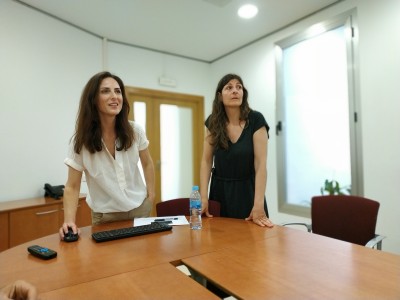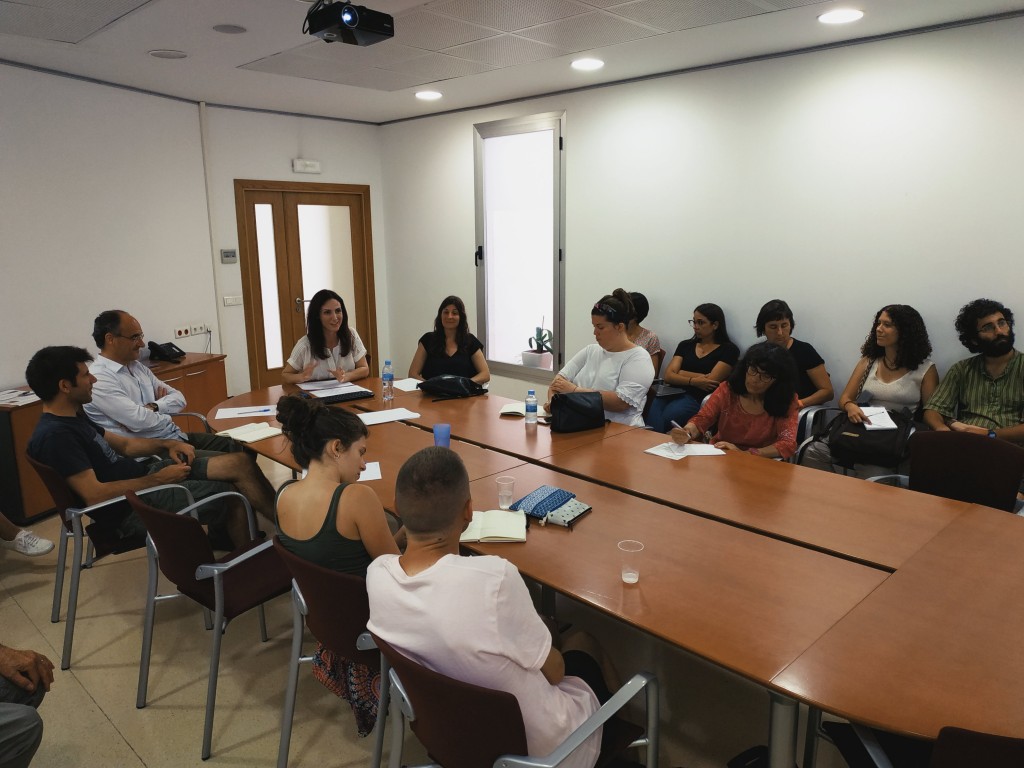

The visit of Dr Efrosyni Boutsikas carried us along with the religious rituals of ancient Greece and the role that the stars and constellations had in the collective imagination of our ancestors.
Boutsikas’ research combines digital reconstructions of Antiquity night sky with virtual models of religious structures of Ancient Greece.
It is difficult for us to imagine how the sky looked at that time when there was no light and atmospheric pollution with the now live, but digital reconstructions (with big data from the field of astronomy) allow us to make an approximation to the atmospheric conditions of the moment.
Monuments are not only physical spaces but an idea: they contain memories, meanings and the collective memory of a community.
The study of architectural environments of certain monuments, on the other hand, allows us to see where the religious rituals took place. Boutsikas combines these two approaches for a better understanding of how the spatial movement was experienced in the Antiquity, its emotiveness and its cognitive experience. Her researches look for discover to the present visitant which were those meanings to the people that used these temples, in ancient Greece, with a spiritual or religious purpose.
During the talk, Boutsikas exposed three examples: the temple of Apollo in Bassae, el sanctuary of Artemis Orthia (Sparta) and the Acropolis of Athens. In these monuments, the disposition of the elements, far from being casual, denotes the knowledge that the inhabitants of that time had of the astral movement and how they used it to measure and endow with meaning the pass of time.
In ancient Greece, the astronomic knowledge was a popular knowledge. It has different practical applications (for instance, in the planning of farming works), but it played also a prominent role in shaping popular imagination. In night religious rituals, real and mystical spheres worked in unison.


About twenty people attended Efrosynis’ talk at the ICAC





